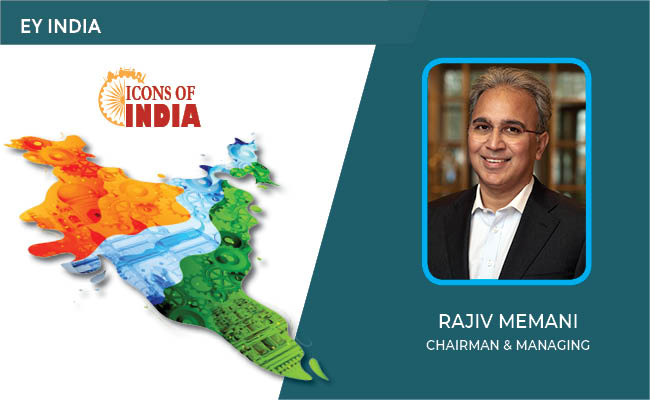88% of Indian workforce prefer to have the flexibility of working from home: SAP Concur study reveals
By MYBRANDBOOK

A new SAP® Concur® commissioned study has revealed that 88 percent of the workforce in India prefer to have the flexibility of working from home. In addition to this, 69 percent of Indian employees believe their productivity has increased while working remotely – highest in the APAC region as compared to countries like Australia, New Zealand, South Korea, Malaysia and Thailand. These figures show positive signs of large scale acceptance of the upcoming ‘new normal’ in the country at a time when COVID-19 pandemic has forced the companies to implement remote working almost overnight.
According to the study, merely 11 percent of Indian organisations have embraced end-to-end digital finance and administrative processes. These manual processes take up significant employee time that can otherwise be used for productive work. Across India, 36 percent of mid-large sized companies are still using manual processes for submitting business expenses.
The survey, entitled “Finance in the New World of Work”, aims to inform business, finance, and HR decision makers of the economic cost of poor finance and administrative processes and systems in the region. It also identifies the gaps in organisations’ expense management, business travel, and remote work processes.
Asia Insight, which conducted the survey, used International Labour Organization (ILO) statistics on output per worker and the number of information workers, and the study’s results, to calculate and derive that saving just 10 percent of the time spent on filing and approving claims would translate to US$2.25 billion of potential GDP revenue gain for India each year, assuming all the lost hours are diverted to productive work. Mid to large-sized organisations could save tens or hundreds of thousands of dollars over the same period.
Elaborating on the insights from the study, Mankiran Chowhan, Managing Director – Indian Subcontinent, SAP Concur, said, “2020 is proving to be a turning point for companies in terms of managing employee experience and productivity. While employees working remotely are being supported digitally in many areas, there still exists a major gap in digital adoption for crucial yet often overlooked finance and administrative processes. Owing to this, employees have to devote significant time for menial tasks that could otherwise be used for productive, business value-added work. Bringing in digital transformation for expense claims or invoice processing can have a huge multiplier effect on business and cost control and at the same time provide the operational agility needed for business continuity.”
Finance Transformation is Lagging
Many Indian firms still run manual finance and administrative processes– resulting in inefficiencies that lead to productivity losses.
Indian employees spent an average of 6.1 hours per month filing expense claims – more than half of a typical workday. Managers had it worse – they spent an additional 7.3 hours reviewing and approving expense claims with the total time adding up to an astonishing 13.4 hours a month.
As many as 36 percent of respondents submit expenses manually by filling out a form and enclosing physical receipts. Such a manual process is tedious, error prone, and incongruous with the digital lifestyles employees are leading today.
Beyond the inefficiency costs, the study also found that current expense management systems’ support for modern payment methods is inadequate. More than a third (39%) of respondents said they want their expense management software to integrate with external apps to enable added functionality like reimbursement of payments made through super apps (umbrella apps containing other apps).
Gearing Up the Workforce for Remote Work
Remote work will be the default mode of work for many organisations in the foreseeable future.
Embracing this change, 88 percent of employees in India have expressed their preference to have the flexibility of remote working.
69 percent of Indian employees believe their productivity has increased while working from home, considerably higher than their other APAC counterparts with overall average of 60 percent.
While 76 percent employees in India said their organisations provide subsidies or completely pay for mobile plan, broadband internet and IT peripherals (greater than the APAC average of around 68 percent),
22 percent employees in India want their organisations to pay for all expenses needed for a productive working environment at home (also highest amongst all countries in APAC against a consolidated average of just 15 percent).
Survey respondents want their employers to enable easy remote claims and travel management, improve collaboration, and provide better IT equipment and services.
Room for Improvement in Business Travel
Once the current pandemic situation begins to normalise, business travel will slowly pick up pace. Corporate travel systems that enable staff to book flights and accommodations digitally and via mobile, perhaps even on their usual personal travel booking platforms and apps, would certainly help in keeping the employees pleased. However, for many organisations, business travel management is piecemeal and disjointed, leaving 27 percent of employees less than satisfied with the time and effort incurred. In addition to this, 57 percent of Indian respondents expect their companies to improve on the ability to personalise all elements of business travel, while 52 percent want to spend less time in the entire process of booking in addition to access to real time alerts.
Recommendations for Transforming Finance Operations
79 percent of Indian employees strongly link their overall finance and administrative experience and their overall satisfaction of working for their organisations. This suggests that if businesses want to retain their talent, they need to improve their finance and administrative processes. This is also an opportunity for organisations to embrace remote work for better business outcomes. Here are three recommendations for businesses:
1. Align Systems and Tools to Optimally Support Remote Work- Organisations must make their infrastructure and processes conducive for remote work. This includes digitising paper receipts, allowing vendors to invoice organisations directly for their employees’ purchases, and deploying experience management tools for better collaboration. Companies should also review their expense policies to ensure staff are properly reimbursed for items or services used to facilitate remote work. Digital applications that are mobile-friendly and offer great user experience will also help in enhancing the overall employee experience.
2. Automate Expense and Business Travel Management- Automation takes repetitive, manual aspects out of routine finance and administrative tasks, saving employees time so they can focus on meaningful work. It also saves time for the finance team by eliminating paperwork and detecting erroneous or fraudulent claims. Just as importantly, automated solutions provide visibility and control, and facilitate compliance.
3. Make Business Travel More Streamlined and Personalised- Travel managers should revamp their travel management systems by:
· Enhancing controls: Reviewing their travel policy to better control costs; moving to digital receipts; and aligning their expense and travel policies
· Improving visibility: Integrating their travel and expense systems to facilitate data flow; considering app-based bookings that still stay within corporate policy; and improving budget and spend reporting
· Bolstering duty of care readiness: Ensuring they know travellers’ locations at all times and be in a position to render assistance
Adoption of the above recommendations will lead to an efficient, agile, and innovative finance organisation capable of delivering exceptional employee experience, which can better support the business in delivering value to customers, helping it become more resilient for the new era.


Legal Battle Over IT Act Intensifies Amid Musk’s India Plans
The outcome of the legal dispute between X Corp and the Indian government c...

Wipro inks 10-year deal with Phoenix Group's ReAssure UK worth
The agreement, executed through Wipro and its 100% subsidiary,...

Centre announces that DPDP Rules nearing Finalisation by April
The government seeks to refine the rules for robust data protection, ensuri...

Home Ministry cracks down on PoS agents in digital arrest scam
Digital arrest scams are a growing cybercrime where victims are coerced or ...


Icons Of India : RAJENDRA SINGH PAWAR
Rajendra Singh Pawar is the Executive Chairman and Co-Founder of NIIT ...

ICONS OF INDIA : RAJIV MEMANI
As Chair of the EY Global Emerging Markets Committee, Rajiv connects e...

Icons Of India : Harsh Jain
Harsh Jain, the co-founder of Dream 11, the largest fantasy sports web...


HPCL - Hindustan Petroleum Corporation Ltd.
HPCL is an integrated oil and gas company involved in refining, market...

PFC - Power Finance Corporation Ltd
PFC is a leading financial institution in India specializing in power ...

UIDAI - Unique Identification Authority of India
UIDAI and the Aadhaar system represent a significant milestone in Indi...


Indian Tech Talent Excelling The Tech World - NEAL MOHAN, CEO - Youtube
Neal Mohan, the CEO of YouTube, has a bold vision for the platform’s...

Indian Tech Talent Excelling The Tech World - Lal Karsanbhai, President & CEO, Emerson
Lal Karsanbhai, President and CEO of Emerson, assumed the leadership i...

Indian Tech Talent Excelling The Tech World - JAYASHREE ULLAL, President and CEO - Arista Network
Jayshree V. Ullal is a British-American billionaire businesswoman, ser...
 of images belongs to the respective copyright holders
of images belongs to the respective copyright holders